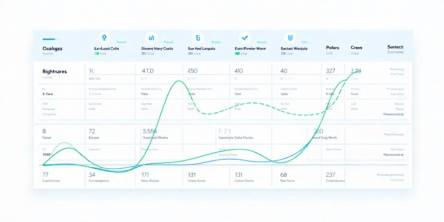Android and iOS Development: Battle of the Mobile Apps Leaders

If you are operating in the present digital landscape, mobile app development will turn out to be the need of the hour. A dynamic, scalable, and high-performance app can accelerate your bottom lines and help you carve a distinctive niche in the professional arena. However, it’s here that most of the business owners and entrepreneurs come across a crucial question.
When it comes to solutions for Android or iOS application development service company, which could be the right platform for business owners? Both iOS and Android have their share of pros and cons. It’s here that targeted assessment of these platforms will help you make the right move.
Crucial Factors to Note
Your choice of the app development platform will depend on a lot of factors. Assessing the business model, profit targets, and ROIs are some of the aspects you should care about. In case you are pitching your startup and wish to optimize profits quickly, iOS will be the perfect platform for you.
However, there’s a subtle difference between the Android and iOS platforms when it boils down to developing enterprise apps. The user-friendly interface and simple integrations make Android the perfect option for business app development.
Coding Matters
Technical aspects and technological aids matter a lot in the entire coding process. If you wish to create an app that captures the minds of the target audience, one-size-fits-all approaches won’t work. It is highly imperative to seek skilled coding assistance while embarking on a mobile app development project. Depending on your objectives and enterprise goals, you can zero-in on the technology stack. Here are the two most crucial factors in this regard:
Speed: The need for speed is indispensable. If that’s what you wish for, choosing simple integrations over complex functionalities would be the right thing to do.
Creating APIs: Working on API creation happens to be of prime importance. Developers might opt for Ruby on Rails, C#, and Ruby for back-end development. In that case, the API creation module should be based on similar technologies.
Coding scripts: As there is a need for Java developers in Android platform, likewise there’s need for Swift or Objective C developers in iOS platform. However, the former option turns out to be more viable compared to the latter.
Assessing Pros and Cons
While technicalities will always be of prime significance, you just can’t ignore the need for proper assessment of both these platforms. Since you have decided to go mobile with a dynamic and remarkable app, knowing about the benefits and drawbacks of Android and ios application development services will be crucial. Here we go!
Android Agonies
Although there’s no denying the user-friendly nature of the Android platform, it isn’t devoid of cons. Breeze through these points for a crystal clear idea:
Time-consuming: The presence of multiple devices and numerous versions make the entire process a bit inconsistent. Simply put, it becomes difficult to achieve precision and accuracy in an Android app development project.
Problem with multiple screen size: Developing a mobile application for your dream venture that too on the Android platform can be extensive. You have to create the app for multiple devices to stay ahead of the growth curve. However, creating an app that suits numerous screen sizes is undoubtedly laborious.
What Works Well?
Android comes up with a range of exclusive benefits too. Here’s a quick look for you:
Extensive market: Android’s market share is perhaps the largest. Quite naturally, consumer outreach would be extensive too.
Multiple customizations: You can integrate and add customizations according to as and when available. That will surely scale up the app and accelerate its functionalities.
Why Opt for iOS?
Device fragmentation is completely absent for iOS. As a result, the development process gets facilitated thus helping developers churn out stable apps.
Restrictions
The platform comes with quite a few restrictions which make customizations and future integrations tough for developers. This particular aspect turns out to be a major drawback of the platform.
Signing off
The factors discussed above will surely give you an idea of the benefits and drawbacks of both these platforms. If you are planning to create a highly scalable app for your enterprise, make sure you consider the important factors and then nail down the decision. Associating with leading Android developers and a reputed iOS app development company would be the right step. We can just hope that the best ‘man’ wins in this unique battle between the two biggies.
Similar Articles
Food delivery applications, including Uber Eats, DoorDash, Zomato, Swiggy, and Grubhub, generate large volumes of valuable data.
Modern businesses are drowning in communication overload, and much of that burden stems from outdated tools that simply can’t keep up
Building lending software isn’t just a technical project—it’s a business decision. Whether you're a fintech founder or part of a traditional lending institution trying to go digital, three questions will shape everything that follows
Learn why robust security is crucial for super app development. Explore key strategies and best practices for mobile app development security.
Walkie-talkies with an extensive reception capacity have changed significantly when it comes to portable communication by displaying cutting-edge features with seamless connectivity that covers more than just the state
USB-C technology has revolutionized the way we charge our devices, offering faster charging speeds, higher power delivery, and universal compatibility across multiple devices
Discover expert mobile app development strategies to create a viral app that attracts users and boosts engagement
Optimize app localization for iOS users across the EU with language, cultural, and regulatory adaptations. Engage users and boost retention with these tips!
Discover the top 10 mobile app development trends of 2024! Explore 5G, AI, AR/VR, blockchain, and more to stay ahead in the ever-evolving app development landscape.









